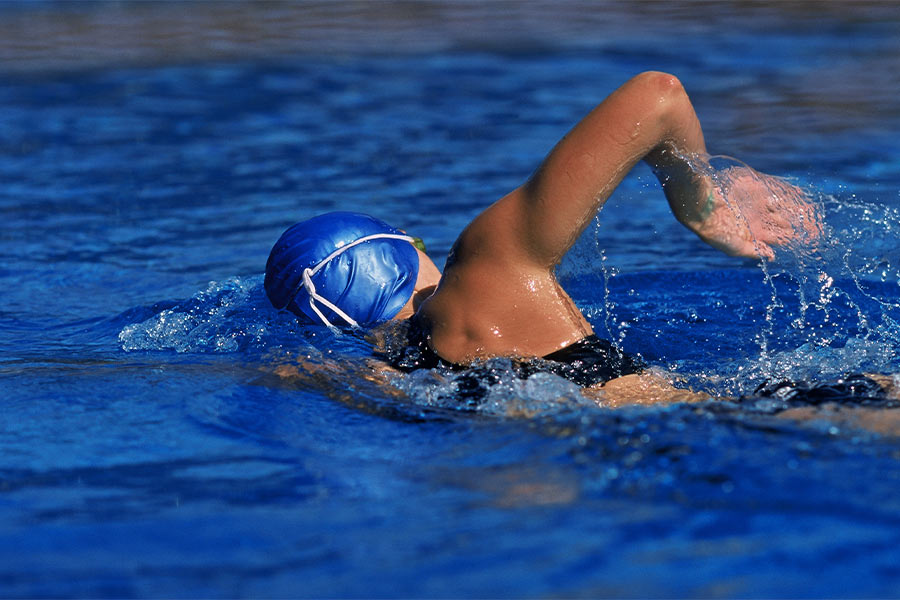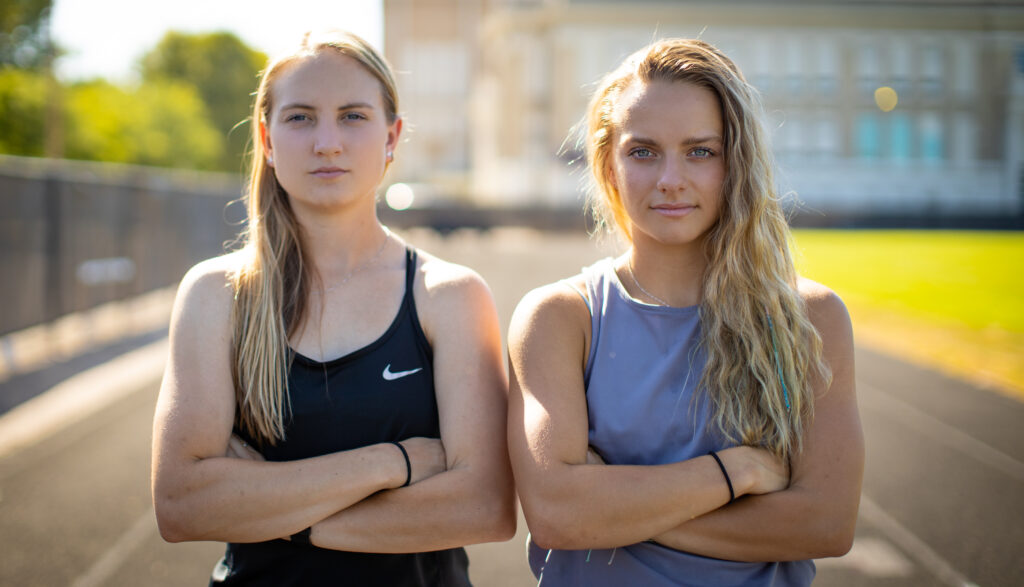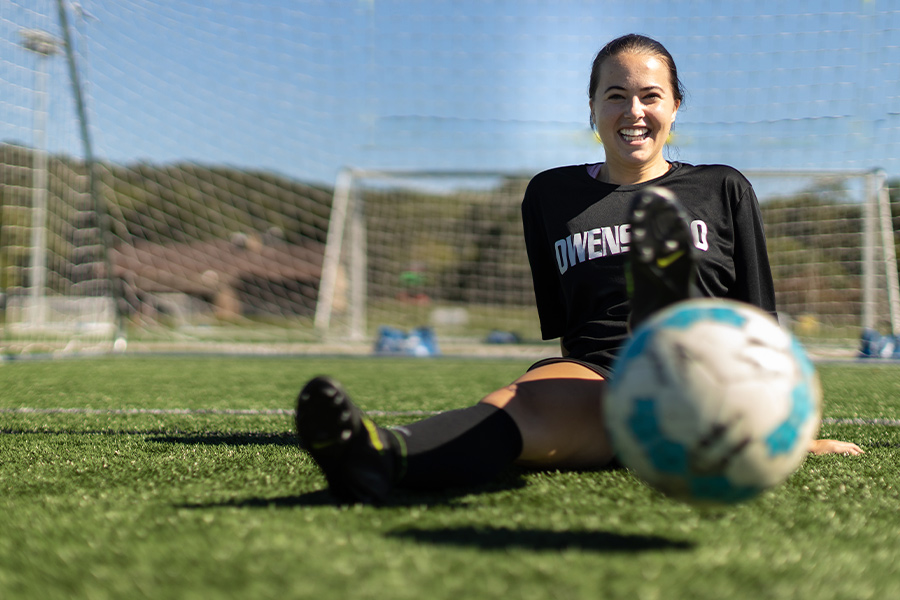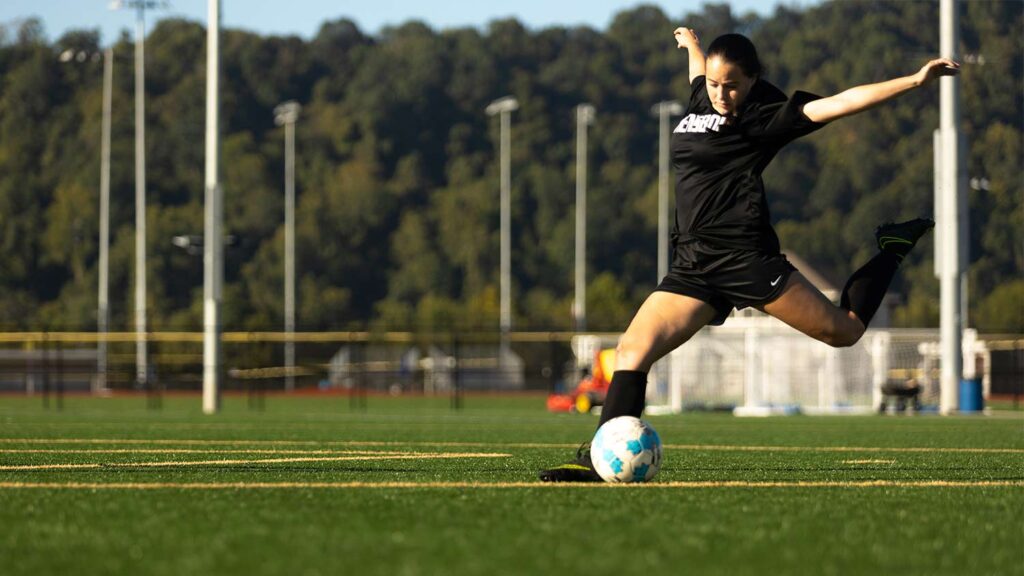
The rise of male athletes competing on female teams is threatening the existence of women’s sports. No matter how hard activists try to obscure this fact, they cannot change the truth, which is becoming more evident every day.
It was apparent in 2022, when University of Pennsylvania male swimmer Lia Thomas went from 462nd in NCAA Division I men’s swimming to a national champion as a Division I women’s swimmer. But anyone who was paying attention could see that Thomas’s story was only the beginning.
This fall, a story unfolded at Roanoke College in Salem, Virginia, that bore an eerie resemblance to the Lia Thomas saga. And though the turmoil at Roanoke College has seemingly ended for now, female swimmers from the Virginia school and across the country are calling for much-needed change.
Female swimmers felt ‘blindsided’
The trouble at Roanoke College began in September 2023, soon after students returned from summer break. It was then that a male athlete who had previously competed on the college’s men’s swim team told school officials he wished to join the women’s team.
The athlete had spent the 2022 season sitting out while undergoing testosterone suppression. Under NCAA rules, a male athlete must suppress testosterone for 12 months prior to competing against women. Now, this athlete wanted to return to swimming to compete on the women’s team. When women’s team captains Kate Pearson, Lily Mullens, and Bailey Gallagher found out, they were shocked and dismayed.
“I never expected to be blindsided by a teammate from the men’s team who now wanted to compete against me and my fellow swimmers and shatter our records,” Gallagher said, according to the New York Post.
Mullens said the news made her question whether the women should even compete knowing that “our defeat was written in biology.”
An expert report by Dr. Gregory A. Brown, an exercise science professor at the University of Nebraska, shows that Mullens is absolutely correct. Males have greater height and weight; larger, longer, and stronger bones; larger muscles; and higher rates of metabolizing energy than women.
All of these traits give male athletes an inherent physical advantage over females. But when the three captains brought these valid concerns to their coach, they didn’t receive the support they needed.
“We were told that even if our whole team stood against it and refused to compete, the swim coach would be able to compete with just that person on the team,” Pearson said. “They could just have a one-person team.”
Fending for themselves
School officials suggested if the captains wanted to make their case that the women’s swim team should consist of only women, they had to do so by personally confronting the male athlete.
The three women tried to follow these instructions by sending multiple letters and voicing their opinions calmly at a team meeting. But they were at best abandoned, and at worst actively sabotaged, by the administration.
At one point, female swimmers said they were forced to vote on whether to allow the male athlete to stay on the women’s team as the athlete was standing in front of them. At another point, the captains said the athletic director told them to write a letter to the male athlete detailing their concerns, only to turn around and tell the male athlete that the women wrote “disgusting things.”
And even when the male athlete withdrew from the women’s team, the captains said their coach effectively guilt-tripped them by saying, “You got what you wanted.”
“None of us want a person to quit the sport that they love,” Pearson said. “We just want everyone to compete in a way that is fair.”
We must stand up to protect women
Contrary to the way they were treated by Roanoke College officials, these three women are not villains. Quite the opposite. Speaking up for biological reality takes courage, but it couldn’t be more important at a time when activists are contorting the definitions of sex and gender.
The Roanoke College women’s swim team understands the importance of fighting for reality, which is why the team held a press conference following the debacle and called on the NCAA to ensure women’s sports are reserved for women.
At Alliance Defending Freedom, we understand the importance of biological reality, too. It’s why we are representing female athletes nationwide—from West Virginia to Connecticut to Idaho—as they stand up to defend equal opportunities for women and girls.
While the incidents at the University of Pennsylvania and Roanoke College have garnered national media coverage, it’s not just the flashy stories that deserve our attention. Similar issues are occurring across the country. Until our laws and policies reflect the reality of what it means to be male and female, the issue will continue to worsen.
Since 2020, 23 states have passed laws protecting female athletes. As we seek to defend women’s sports nationwide, we must continue calling on more states to follow suit.






